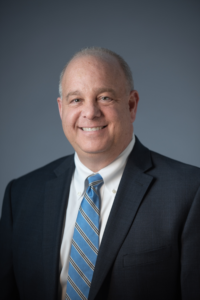Alzheimer’s is a devastating disease that attacks a person’s memory, independence, and body control. It has been said that there are three stages to the disease: mild, moderate, and severe. However, this breakdown is a bit too simple. So how many stages of Alzheimer’s are there?
Many have argued that there are closer to seven stages of Alzheimer’s, each with its distinct traits and difficulties. Read on for Capital Caring’s complete breakdown of the stages of Alzheimer’s, based on the seven-stage model.
Stage One: No Symptoms Seen
In stage one of Alzheimer’s, there will be no signs on the outside. Consider someone with no symptoms of Alzheimer’s to be in phase one of the process. Someone could be in this stage for more than a decade before anything clearly begins to take hold.
Stage Two: Very Mild Symptoms
Stage two is where more clear symptoms of Alzheimer’s will begin to show, but nothing severe enough to halt someone’s ability to function in daily life without assistance. Relatives and associates will often assume that someone in this early stage of Alzheimer’s is merely getting older and losing their memories as a normal part of aging.
Stage Three: Noticeable Difficulties
In the third stage of Alzheimer’s, noticeable memory deficiencies will begin to appear. For the moment, the only symptom is memory loss, and most people in stage three can continue to live relatively normal lives. After stage three, the symptoms start to become a bit more debilitating.
Stage Four: More Than Memory Loss
In stage four, people living with Alzheimer’s may begin to lose more than just their memory. The ability to function as if everything is normal and healthy will start to erode. Those in stage four are prone to get lost, lose focus, and have more difficulty moving around independently.
Stage Five: Losing Independence
The effects of stage four become more severe during stage five, in which many sufferers will begin to lose their independence. Someone in stage five will be unable to perform many tasks that are considered routine, such as making transactions in a store. At this point, family members should step in and consider assisted living.
Stage Six: Severe Decline
Stage six of Alzheimer’s is where an even more severe cognitive and physical decline will occur. Other side effects of the disease, such as hallucinations, have been brought up about stage six. This is perhaps the steepest drop in cognitive ability among the seven stages.
Stage Seven: Lack of Control
In stage seven, the sufferer will have a nearly complete lack of control of their memory and cognitive functions. Assisted living or hospice care will be essential at this point in the process, and those living with Alzheimer’s may require around-the-clock care. Unfortunately, the lack of control associated with stage seven of Alzheimer’s is irreversible and can only be managed.
Give Capital Caring a Call
Capital Caring can help those who are suffering from Alzheimer’s. If you or a loved one suspects that someone close is in the process of battling Alzheimer’s, do not wait to act. Most stages past stage three will require some level of care, and Capital Caring can help keep you or your loved one comfortable and accounted for. Call us today with any questions you may have.



 Dr. Cheryl-Lynne McCalla, DO
Dr. Cheryl-Lynne McCalla, DO Kathleen Ramkaran, RN, CCM
Kathleen Ramkaran, RN, CCM Hali Gantumur
Hali Gantumur Yasmin
Yasmin  Jennifer Olsen GNP-BC
Jennifer Olsen GNP-BC Meena Raj, MD,
Meena Raj, MD, 

 Kimberly Grove
Kimberly Grove
 Pat Bishop
Pat Bishop Elizabeth Ariemma
Elizabeth Ariemma Ray Jay Garcia, M.D.
Ray Jay Garcia, M.D.
 Heidi Young
Heidi Young Matt Kestenbaum
Matt Kestenbaum
 Anne Silao-Solomon, M.D.
Anne Silao-Solomon, M.D. Matthew Irwin, M.D., M.S.W.
Matthew Irwin, M.D., M.S.W. Catherine McGrady, RN, MSN, is Vice President, Clinical Programs at Capital Caring Health. In this role she is responsible for the development, implementation, and monitoring of clinical programs in support of high-quality patient-centered care delivery across the continuum of services. Catherine also manages external partnerships including Capital Caring Health’s participation in ACOs and other value-based clinical programs
Catherine McGrady, RN, MSN, is Vice President, Clinical Programs at Capital Caring Health. In this role she is responsible for the development, implementation, and monitoring of clinical programs in support of high-quality patient-centered care delivery across the continuum of services. Catherine also manages external partnerships including Capital Caring Health’s participation in ACOs and other value-based clinical programs Jason Sobel, MD
Jason Sobel, MD Kremena Bikov
Kremena Bikov Stacy Brown
Stacy Brown Jackie Gouline
Jackie Gouline Susan Roberts
Susan Roberts Brenan Nierman
Brenan Nierman Annette Lindsay
Annette Lindsay Shannon Collier
Shannon Collier Carla Thompson
Carla Thompson Gabby True
Gabby True Evan Kirschner
Evan Kirschner Margaret Doherty
Margaret Doherty Henry Fuller
Henry Fuller Jennifer Godwin
Jennifer Godwin Sally Hughes
Sally Hughes LaWanda Middleton
LaWanda Middleton Hope Collazo
Hope Collazo Odessa Simpson
Odessa Simpson Anne Young
Anne Young Sherri Parker
Sherri Parker Catherine Kravolec
Catherine Kravolec Heidi Young, M.D.
Heidi Young, M.D.
 Hank Willner, M.D.
Hank Willner, M.D. Audrey Easaw
Audrey Easaw Julia Feldman
Julia Feldman Gus has been a part of the Capital Caring Health family for nearly fifteen years. Ten of those years have been in leadership, working with colleagues and co-workers to achieve the best in their ability while promoting CCH core values. Gus has a background in nursing and a lifelong passion for technology. In each position at CCH, Gus has found ways to integrate technology to enhance outcomes and job satisfaction.
Gus has been a part of the Capital Caring Health family for nearly fifteen years. Ten of those years have been in leadership, working with colleagues and co-workers to achieve the best in their ability while promoting CCH core values. Gus has a background in nursing and a lifelong passion for technology. In each position at CCH, Gus has found ways to integrate technology to enhance outcomes and job satisfaction.
 Linda Biedrzycki
Linda Biedrzycki Joe Murray
Joe Murray Lin Maurano
Lin Maurano Laura Branker
Laura Branker Cameron Muir, M.D.
Cameron Muir, M.D. Cameron Muir, M.D.
Cameron Muir, M.D. Fellowship
Fellowship Lee-Anne West, M.D.
Lee-Anne West, M.D.
 Steve Cone
Steve Cone

 Kieran Shah
Kieran Shah Altonia Garrett
Altonia Garrett Jason Parsons
Jason Parsons Nancy Cook
Nancy Cook Michael Byas-Smith, M.D.
Michael Byas-Smith, M.D. Olubukola Bolaji, M.D.
Olubukola Bolaji, M.D. Jennifer Gerhard, D.O.
Jennifer Gerhard, D.O. Hershell Foster
Hershell Foster Michael Toohig’s Story
Michael Toohig’s Story Liberating Europe
Liberating Europe Marrygold Ugorji’s Story
Marrygold Ugorji’s Story Sherri Parker, Team Leader Medical Social Worker
Sherri Parker, Team Leader Medical Social Worker Colleen Carberry, RN Case Manager
Colleen Carberry, RN Case Manager Paulette Davidson, Chaplain
Paulette Davidson, Chaplain Donna Smith
Donna Smith Tabitha Gingerich, NP
Tabitha Gingerich, NP Dwayne Barton, NP
Dwayne Barton, NP Caitlin Geary
Caitlin Geary Sayaka Hanada
Sayaka Hanada Sherri Parker
Sherri Parker
 Mandy Brouillard
Mandy Brouillard Tamara Barnes, M.D.
Tamara Barnes, M.D. Alan Goldblatt, M.D.
Alan Goldblatt, M.D. Amanda Keerbs, M.D.
Amanda Keerbs, M.D. Adam Knudson, M.D.
Adam Knudson, M.D. Peyman Mamdouhi, D.O.
Peyman Mamdouhi, D.O. John McCue, D.O.
John McCue, D.O. Christopher Pile, M.D.
Christopher Pile, M.D. Maleeha Ruhi, M.D.
Maleeha Ruhi, M.D. Mohammad Saleem, M.D.
Mohammad Saleem, M.D. Jason Sobel, M.D.
Jason Sobel, M.D. Carolyn Richar
Carolyn Richar Susan Boris
Susan Boris Keith Everett
Keith Everett Vivian Hsia-Davis
Vivian Hsia-Davis David Schwind
David Schwind Eric De Jonge, M.D.
Eric De Jonge, M.D. Melissa McClean, N.P.
Melissa McClean, N.P. Shaz Anwar, D.O.
Shaz Anwar, D.O. Petros
Petros  Neil Parker’s Story
Neil Parker’s Story Sulaiman Bangura’s Story
Sulaiman Bangura’s Story Steven Skobel’s Story
Steven Skobel’s Story